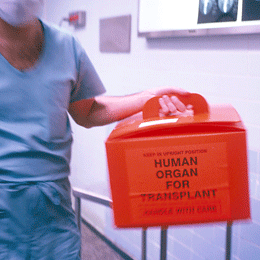
More than 9,000 kidney transplants are performed in the U.S. each year, making them the second most common transplant procedure, after corneal transplants. But even when recipient and donor are matched for blood type and other immune-system profiles, approximately 10% of kidneys are rejected. Now researchers in Dallas have discovered that particular antibodies found on the layer of cells lining the blood vessels may contribute to kidney rejection. Capitalizing on this finding could take some time. Investigators still need to figure out a way to easily detect and measure the antigens and determine what causes people to develop them.